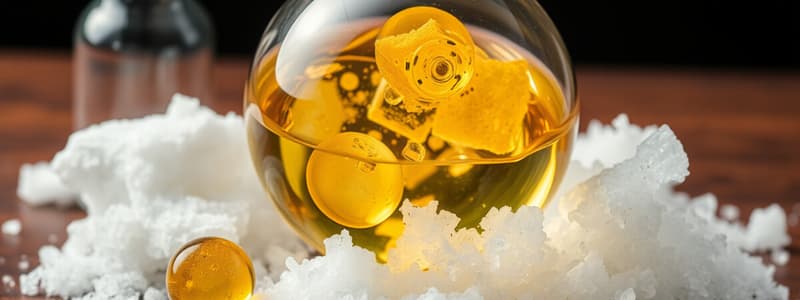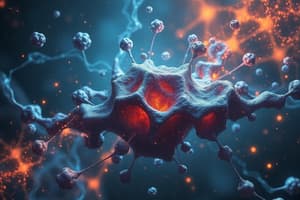Podcast
Questions and Answers
Which of the following is NOT a way we classify objects?
Which of the following is NOT a way we classify objects?
- Color
- Size
- Emotional state (correct)
- Weight
What property describes how hard or soft an object is?
What property describes how hard or soft an object is?
- Hardness (correct)
- Texture
- Weight
- Flexibility
Which sense is NOT used to observe objects?
Which sense is NOT used to observe objects?
- Seeing
- Thinking (correct)
- Hearing
- Smelling
What term describes how an object feels?
What term describes how an object feels?
Which of the following statements about matter is true?
Which of the following statements about matter is true?
Flashcards are hidden until you start studying
Study Notes
Classification of Matter
- Classification is based on shared properties like color, weight, size, and shape.
- Objects consist of various materials that define their characteristics.
Understanding Objects
- An object is defined as a physical entity made from one or more materials.
- Objects can be organized into categories of similar characteristics for easier identification and study.
Observations and Senses
- Observations are details that can be noted about an object through our senses.
- The five senses used for observation are:
- Hearing
- Touching
- Smelling
- Tasting
- Seeing
Properties of Matter
- Hardness indicates the degree of resistance a material has to being dented or scratched (hard vs. soft).
- Texture conveys the feel of an object, such as smoothness or roughness.
- Flexibility measures an object's ability to bend without breaking.
Types of Matter
- Matter is primarily categorized into two states: solids and liquids.
- Understanding these types helps in studying physical properties and their behaviors.
Studying That Suits You
Use AI to generate personalized quizzes and flashcards to suit your learning preferences.




